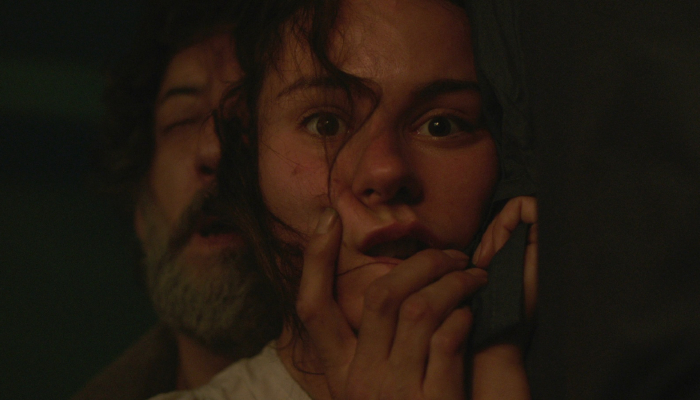The Dawn arrives five years after the success of The High Sun, also directed and written by Matanić and produced by Ankica Jurić Tilić (Kinorama), which had its world premiere in the Un Certain Regard competition at the 2015 Cannes Film Festival, winning the jury award in the programme. That same year, the film was awarded the Grand Golden Arena for Best Film, along with five other Arena awards and the Croatian Society of Film Critics Octavian Award at the Pula Film Festival. In total, The High Sun toured over a hundred international festivals, winning 30 awards around the globe, followed by a successful theatrical distribution around Croatia, as well as abroad, selling to over 25 territories.
“In The Sun Trilogy (The High Sun, The Dawn and Sunset) I wanted to juxtapose the noblest and the most fundamental of human impulses. In The High Sun, I contrasted love and hatred, while in The Dawn I did the same employing an intimate story of a family faced with the rising tide of neo-Nazism. Unable to confront their own tragedy, the members of the family set out on a personal odyssey dealing with the fragmented soul of the protagonist Matija, manifested as the spiritual and material half of the whole. Matija is not ready to face the dark social undercurrents, which demonstrate that history repeats itself with almost mathematical precision, destroying human lives in the process. In a world that does not value inner peace, avoids facing itself and ignores the growing hatred and intolerance, I feel that I have to make a film about pain, mistakes, forgiveness and faith – about what makes us human – as the only remedy for the inevitably self-destructive impulse of our civilization,” said trilogy director and screenplay writer Dalibor Matanić elaborating on the film’s concept and idea.
The Dawn will have its world premiere at the Tallinn Black Nights Film Festival, screening in the Official Selection – Competition programme. It will be in the company of seven other announced titles, including Final Raport, the latest film by the most award-winning director in the history of Hungarian cinema, Oscar winner (in 1982 for Mephisto) István Szabó. The selection will also feature Russian director Anna Melikyan’s The Three.
“We are very happy that the second instalment of The Sun Trilogy will also have its world premiere in competition of an A-list festival, and we are especially pleased that it will be in such fine company. After enduring long months without cinemas and festivals, we are excited that the cinemas have finally reopened their doors and that the festivals are daring to hold screenings before live audiences, even if they are limited in number and wearing masks. To experience the film together with your audience is priceless,” added the film’s producer Ankica Jurić Tilić.
The rest of the film’s creative team consists of Marko Brdar as director of photography, Tomislav Pavlic as editor, sound designers Mirko Perri and Julij Zornik, Ana Savić Gecan as costume designer and Luca Servino as production designer. Nenad and Alen Sinkauz have authored the film’s soundtrack, while Tihana Lazović, Krešimir Mikić, Lara Vladović, Maks Kleončić, Nataša Matjašec Rošker and Marko Mandić make up the cast. The film’s producer is Ankica Jurić Tilić, with co-producers Andrea Paris, Matteo Rovere and Ines Vasiljević. The film is a Kinorama production, co-produced by Ascent Film from Italy, while Cercamon acts as sales representative. The film was created with support from the Croatian Audiovisual Centre, Eurimages, MiBACT – DGC, the Friuli Venezia Giulia Audiovisual Fund, RAI Cinema and the Lazio region.
The Dawn traces Matija whose family is confronted with unresolved trauma, as their neighbours flee from the radicalism that divides them into the chosen ones and the undesirables. As Matija loses his faith and struggles to find his true self, the dawn breaks over the valley, revealing that the only way to deal with trauma and evil is to face them head-on.
The Tallinn Black Nights Film Festival (PÖFF) was launched in 1997 and has since evolved into one of the biggest festivals in northern Europe. As of 2014, the festival holds the FIAPF (International Federation of Film Producers Associations) accreditation for its international competition programme, which puts it in the A-list category, alongside only 14 other film festivals in the world.
The festival organizers have revealed that the film portion of the programme will be held entirely before a live audience, while it was announced in August that the industry section of the festival will be held completely in digital format. For more details about the Tallinn Black Nights Film Festival, please visit the festival’s official website.




















